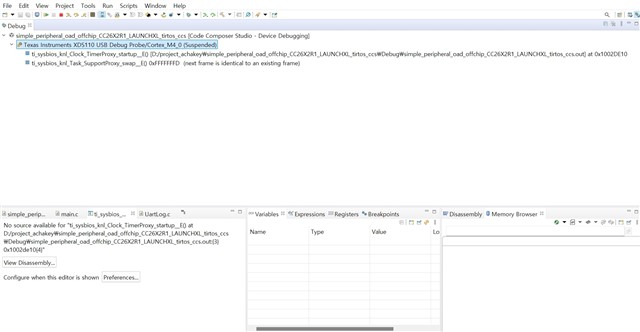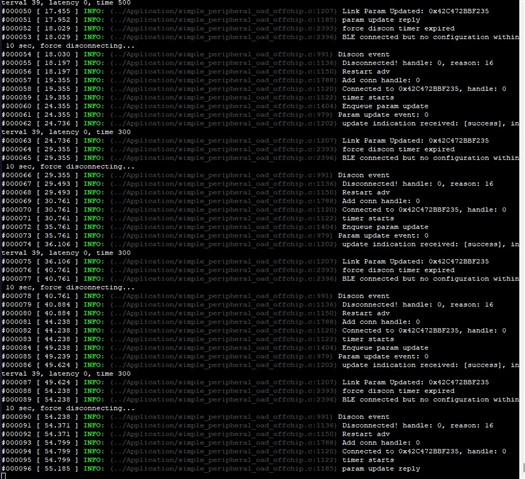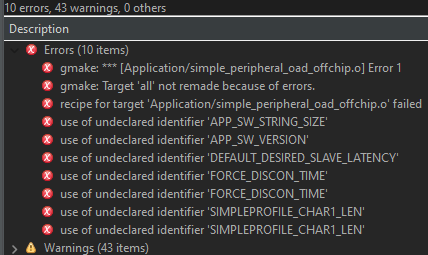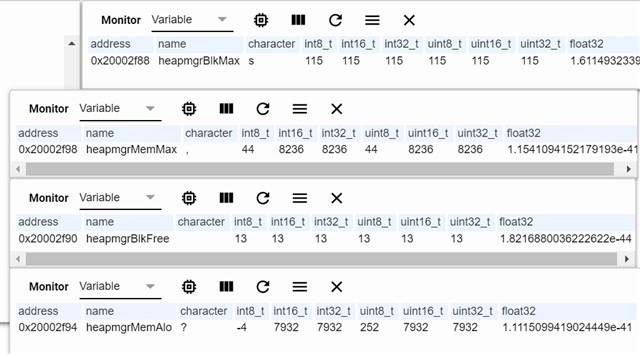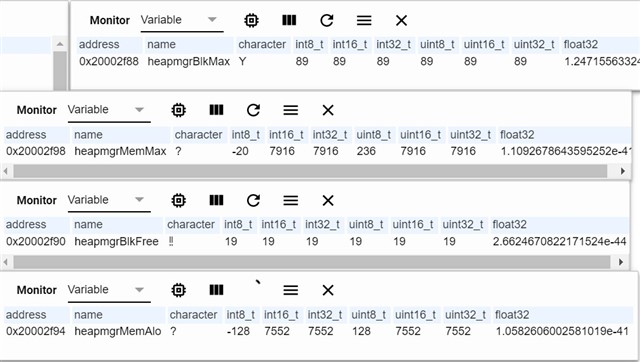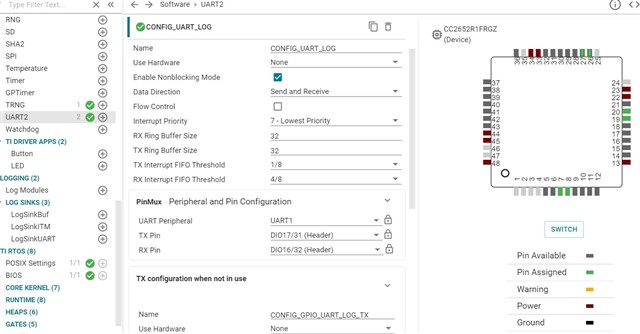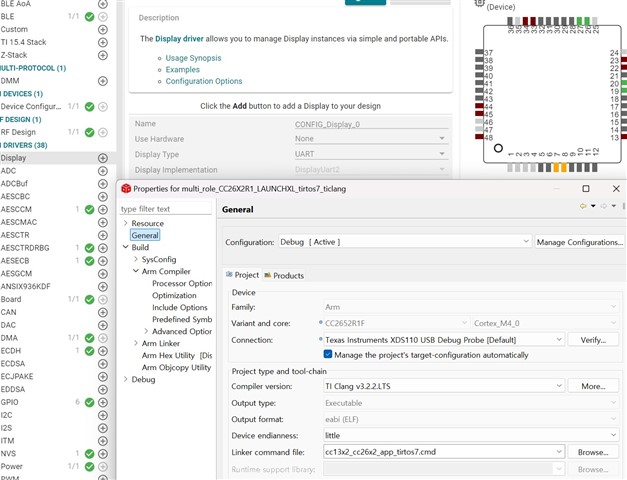Other Parts Discussed in Thread: SYSCONFIG, SYSBIOS
Tool/software:
I'm using CC2642 ble peripheral application, and observed the device gets hang or reset after link established.
Here's how to reproduce:
1. using the simple peripheral example application and added manual disconnect after 10 seconds
2. use auto click mobile app to repeat connection and disconnection automatically every 3xx milliseconds (I used 314ms), and run the nRF Connect mobile app on Samsung Galaxy Note8 (Android 9)
3. After some time (3min or 20min), it's random, the device gets hang.
SimpleLink SDK version: 5.20.0.52, sysconfig: 1.8.2, I think the latest SDK has no difference.
I found it during the project (already released to the market) and reproduced it with your basic example.
I suspect that connection parameter update process, before or after connection parameter reply from the peripheral, in the SDK or stack has some issue.
If the automatic connection and disconnection time is enough long such as 1 sec, it looks fine (no hang or reset).
It is risky that the application cannot provide the safe service to the customer. Please let me know the root cause and how to fix it.


